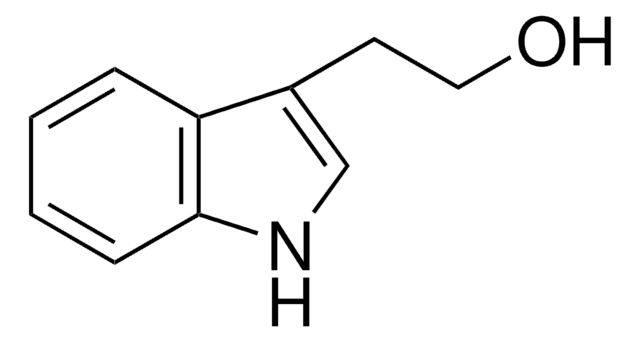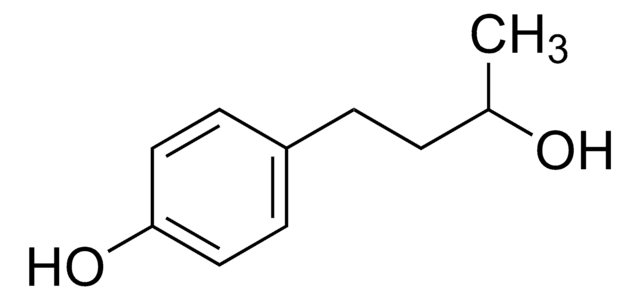188255
2-(4-Hydroxyphenyl)ethanol
98%
Synonym(s):
4-Hydroxyphenethyl alcohol, Tyrosol, p-HPEA
Sign Into View Organizational & Contract Pricing
All Photos(1)
About This Item
Linear Formula:
HOC6H4CH2CH2OH
CAS Number:
Molecular Weight:
138.16
Beilstein/REAXYS Number:
1859884
EC Number:
MDL number:
UNSPSC Code:
12352100
PubChem Substance ID:
NACRES:
NA.22
Recommended Products
Quality Level
assay
98%
mp
89-92 °C (lit.)
functional group
hydroxyl
SMILES string
OCCc1ccc(O)cc1
InChI
1S/C8H10O2/c9-6-5-7-1-3-8(10)4-2-7/h1-4,9-10H,5-6H2
InChI key
YCCILVSKPBXVIP-UHFFFAOYSA-N
Looking for similar products? Visit Product Comparison Guide
Related Categories
General description
2-(4-Hydroxyphenyl)ethanol is a phenolic alcohol commonly present in olive mill wastewater.
2-(4-Hydroxyphenyl)ethanol is a polyphenolic building block used in the synthesis of monobenzoxazine resin.
2-(4-Hydroxyphenyl)ethanol is a polyphenolic building block used in the synthesis of monobenzoxazine resin.
Application
2-(4-Hydroxyphenyl)ethanol was used in chelated zero valent iron catalyzed oxidation of organic acids present in olive mill wastewater
Biochem/physiol Actions
Antioxidant found in olive oil.
signalword
Warning
hcodes
Hazard Classifications
Eye Irrit. 2 - Skin Irrit. 2 - STOT SE 3
target_organs
Respiratory system
Storage Class
11 - Combustible Solids
wgk_germany
WGK 3
flash_point_f
Not applicable
flash_point_c
Not applicable
ppe
dust mask type N95 (US), Eyeshields, Gloves
Choose from one of the most recent versions:
Already Own This Product?
Find documentation for the products that you have recently purchased in the Document Library.
Customers Also Viewed
Irama Sanchez et al.
Journal of hazardous materials, 199-200, 328-335 (2011-11-29)
The aim of this study was to investigate the effect of a chelated zero valent iron as catalyst on the oxidation of six organic acids that are generally found in olive mill wastewater. The reaction was carried out in a
Development of Low-Viscosity and High-Performance Biobased Monobenzoxazine from Tyrosol and Furfurylamine
Zhibin W et al.
MATERIALS, 14, 440-440 (2021)
Synthesis of New Tyrosol-Based Phosphodiester Derivatives: Effect on Amyloid $\beta$ Aggregation and Metal Chelation Ability
Valeria R et al.
ChemMedChem, 16, 1172-1183 (2021)
Extraction of 2-(4-hydroxyphenyl) ethanol from aqueous solution by emulsion liquid membranes.
Reis MTA, et al.
Journal of Membrane Science, 269(1), 161-170 (2006)
M I Covas et al.
Drugs under experimental and clinical research, 29(5-6), 203-206 (2004-05-12)
Tyrosol is a phenolic compound present in two of the traditional components of the Mediterranean diet: wine and virgin olive oil. The presence of tyrosol has been described in red and white wines. Tyrosol is also present in vermouth and
Our team of scientists has experience in all areas of research including Life Science, Material Science, Chemical Synthesis, Chromatography, Analytical and many others.
Contact Technical Service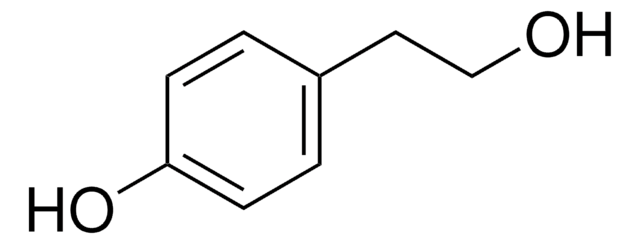
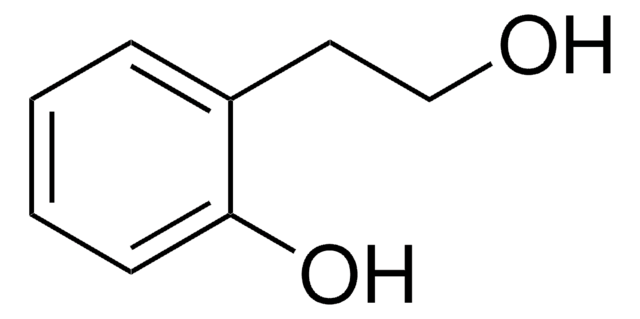


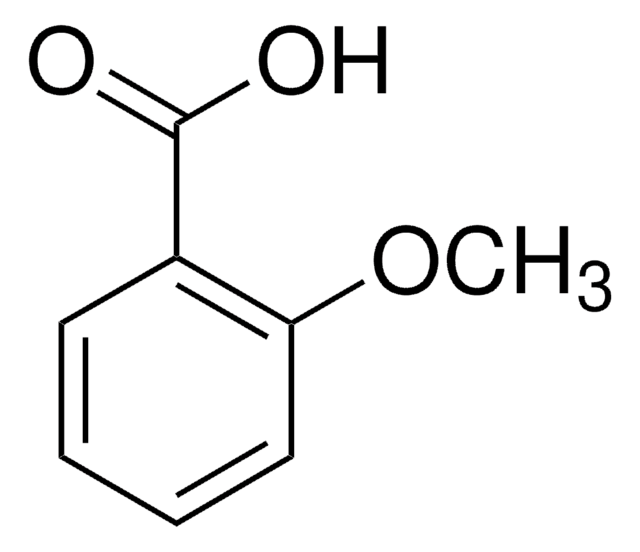
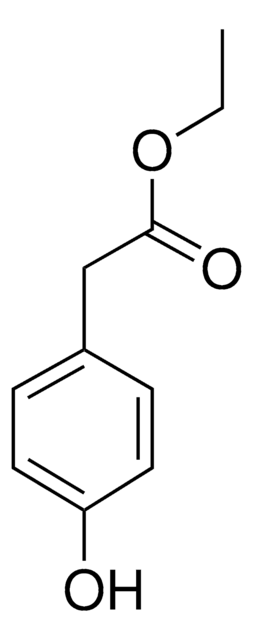

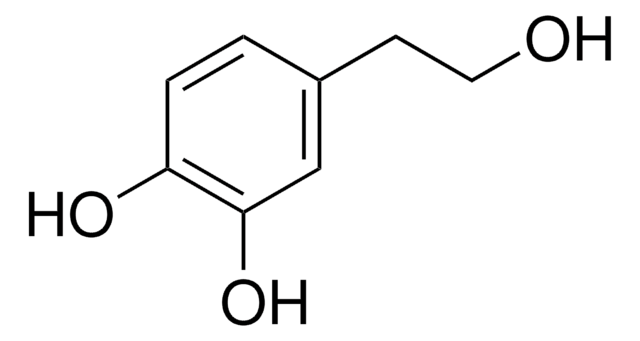



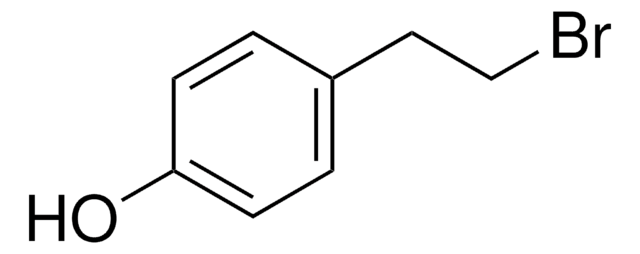
![(S)-2-[(Diphenylphosphino)methyl]pyrrolidine](/deepweb/assets/sigmaaldrich/product/structures/232/330/380bade5-ae8d-49f7-ba1f-aae3401e27eb/640/380bade5-ae8d-49f7-ba1f-aae3401e27eb.png)
